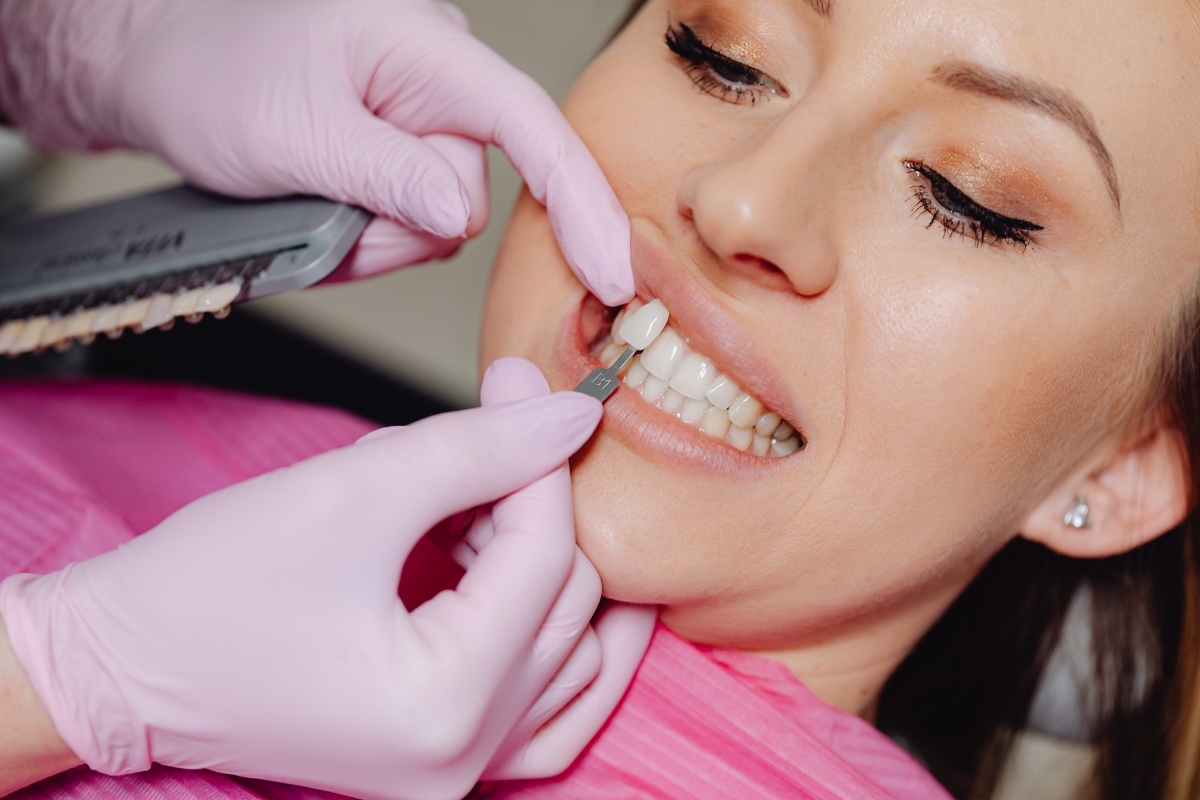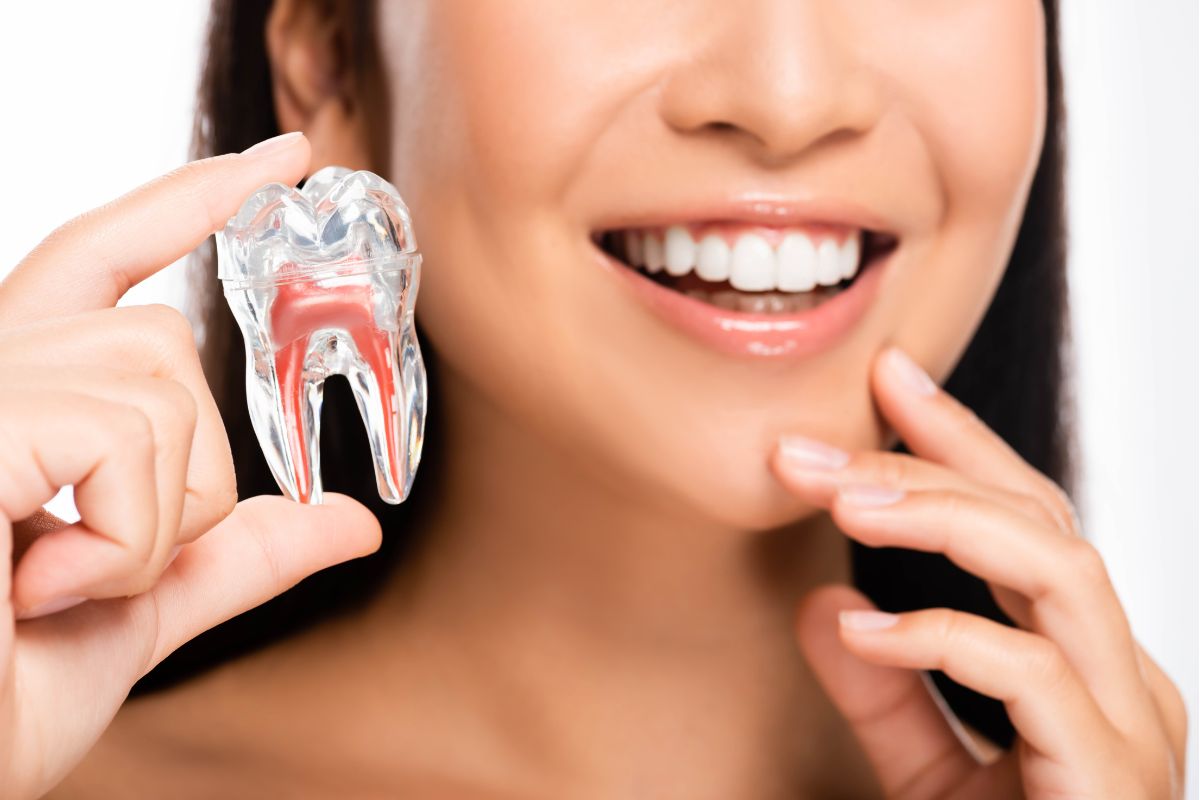Book An Appointment

Dental veneers are a popular cosmetic solution for enhancing the appearance of your teeth. These thin, custom-made shells are designed to cover the front surface of your teeth, improving their shape, size, and color. While veneers can provide a beautiful, natural-looking smile, experiencing pain after getting dental veneers can be concerning. In this comprehensive guide, we’ll explore what to do if you experience major pain after getting dental veneers, including possible causes, treatment options, and preventive measures.
Understanding Dental Veneers
What Are Dental Veneers?
Dental veneers are thin, tooth-colored shells made of porcelain or composite resin that are bonded to the front of your teeth. They are used to correct a variety of cosmetic issues, including:
- Discoloration: To cover teeth that are stained or discolored.
- Chips and Cracks: To repair damaged teeth.
- Gaps: To close gaps between teeth.
- Misalignment: To improve the appearance of crooked or irregularly shaped teeth.
The Procedure for Getting Dental Veneers
- Consultation: Your dentist evaluates your oral health, discusses your aesthetic goals, and plans the treatment.
- Preparation: The dentist removes a small amount of enamel from the front of your teeth to make room for the veneers.
- Impressions: Custom impressions are taken to create your veneers.
- Bonding: The veneers are bonded to your teeth using a special adhesive.
Common Causes of Pain After Getting Dental Veneers
1. Tooth Sensitivity
Tooth sensitivity is a common issue after getting veneers. The process of preparing the teeth involves removing some enamel, which can make your teeth temporarily more sensitive to hot, cold, or sweet foods and beverages.
2. Incorrect Fit
If the veneers do not fit properly, they can cause discomfort or pain. Poorly fitting veneers may lead to pressure on the underlying tooth or gums, resulting in pain.
3. Gum Irritation
The bonding process and the presence of veneers can sometimes irritate the gums, leading to soreness or discomfort around the veneer area.
4. Dental Infection
In rare cases, pain after getting veneers could be a sign of a dental infection. If bacteria enter through the area where the veneer is bonded, it can cause infection and pain.
5. Underlying Dental Issues
Existing dental issues, such as decay or a cracked tooth, may become more noticeable after veneers are placed. The veneers may exacerbate these underlying problems, leading to discomfort.
6. Grinding or Clenching
If you grind or clench your teeth, the pressure can affect the veneers and cause pain. Veneers can sometimes be affected by bruxism, which may lead to discomfort or damage.
What To Do If You Experience Major Pain
1. Contact Your Dentist
If you experience significant pain after getting veneers, your first step should be to contact your dentist. They can evaluate your situation, identify the cause of the pain, and recommend appropriate treatment. It’s important not to ignore persistent pain, as it could indicate an underlying issue that needs to be addressed.
2. Take Over-the-Counter Pain Relievers
For temporary relief, you can take over-the-counter pain relievers such as ibuprofen or acetaminophen. These medications can help manage pain and reduce inflammation. Be sure to follow the dosage instructions on the label.
3. Use Desensitizing Toothpaste
If tooth sensitivity is causing discomfort, using a desensitizing toothpaste can help. These toothpastes contain compounds that block the nerve endings in your teeth, reducing sensitivity over time.
4. Avoid Hard or Sticky Foods
To minimize discomfort and prevent further irritation, avoid consuming hard or sticky foods. These foods can put additional pressure on your veneers and exacerbate pain.
5. Practice Good Oral Hygiene
Maintain excellent oral hygiene by brushing twice a day with a soft-bristled toothbrush and flossing daily. Keeping your mouth clean helps prevent gum irritation and reduces the risk of infection.
6. Apply a Cold Compress
If your pain is accompanied by swelling, applying a cold compress to the outside of your cheek can help reduce inflammation and provide relief. Apply the compress for 15-20 minutes at a time.
7. Avoid Acidic or Sugary Foods
Acidic and sugary foods can increase tooth sensitivity and discomfort. Try to avoid these types of foods, especially immediately after getting veneers.
8. Check for Proper Fit
If you suspect that the pain might be due to an improper fit, your dentist can examine your veneers to ensure they are correctly aligned and bonded. Adjustments may be necessary to alleviate discomfort.
9. Consider an Adjustment or Replacement
If the veneers are causing persistent pain due to an incorrect fit or other issues, your dentist may need to make adjustments or, in some cases, replace the veneers. This process involves reshaping or remaking the veneers to ensure a proper fit and comfort.
Preventive Measures to Avoid Pain After Getting Dental Veneers
1. Choose an Experienced Dentist
Select a dentist with extensive experience in placing dental veneers. An experienced professional is more likely to achieve a precise fit and minimize the risk of complications.
2. Discuss Your Concerns Before Treatment
Before getting veneers, discuss any concerns or potential issues with your dentist. This includes any history of tooth sensitivity, grinding, or other dental problems that might affect the outcome.
3. Follow Aftercare Instructions
Your dentist will provide aftercare instructions following the placement of your veneers. Adhering to these instructions helps ensure proper healing and minimizes the risk of complications.
4. Regular Dental Check-Ups
Schedule regular dental check-ups to monitor the condition of your veneers and overall oral health. Regular visits allow your dentist to address any issues early and ensure the longevity of your veneers.
5. Use a Nightguard if Necessary
If you grind or clench your teeth, consider using a nightguard to protect your veneers from damage. A nightguard can help reduce the pressure on your teeth and prevent discomfort.
Experiencing major pain after getting dental veneers can be unsettling, but understanding the potential causes and taking appropriate steps can significantly ease your discomfort. Whether the pain results from sensitivity, an improper fit, or other factors, it’s essential to consult your dentist for a thorough evaluation and tailored treatment. In the meantime, managing pain with over-the-counter medications, practicing good oral hygiene, and avoiding hard or sticky foods can help alleviate symptoms. Preventive measures, such as choosing an experienced dentist and using a nightguard if needed, will contribute to the long-term success of your veneers. With proper care and attention, you can enjoy a beautiful, pain-free smile and the confidence it brings.






